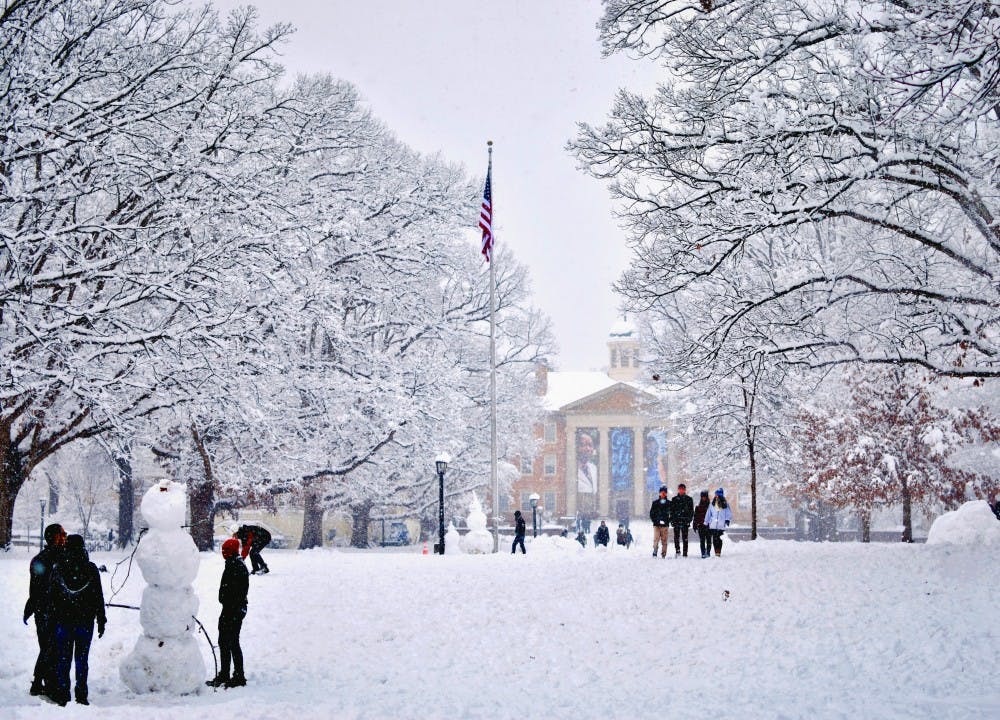While the majority of UNC students face challenges involved with leaving home for the first time, many of the nontraditional students enter UNC with life experiences and maturity before even stepping foot on campus.
Outside the large community of 18 to 22-year-old students at UNC who have come straight from high school to college, the University is home to a community of nontraditional students as well.
Nontraditional students are those who don’t fit the mold of what many consider to be the typical college student. They could be adult learners, students who have taken a gap year or those who have taken time away from school for a variety of reasons.
Returning to school after taking time off can provide challenges for these students. Not only is transitioning back into the classroom an adjustment, but the age difference between many nontraditional students and that of the rest of the student body often creates a distance between these groups. First-year student Megan Ragusa said she felt this disconnect, not only with students at UNC, but with her high school classmates after she took a gap year.
“I think just the feeling of being one class behind for me was a really hard concept for me to get over mentally,” Ragusa said. “With all the people I graduated from high school with, and with them already being pretty much halfway through college, finishing up their sophomore years, I think that was a big mental hurdle for me to get over. But I think in the long run I’m really happy that I did it.”
Nontraditional students can also face certain stigmas based on their age as well. Senior Matthew Taylor experienced this when returning to UNC after he took time off from school and joined the workforce for a period of time.
“I know at one point I face a little bit of stigma just coming back to UNC and being an older student still in undergrad, wondering whether or not I could be in grad school at this point, but then you just come to realize that you can’t skip steps and there’s always the opportunity, things come when they come, and a UNC degree definitely bears weight no matter when I get it,” Taylor said.
Despite the challenges they face, the life experience that most nontraditional students have proves to be an asset once they return to school. Taylor said returning to school as an older student gave him more maturity than his younger peers. Ragusa agreed.
“I think there’s a level of maturity you get from taking some time off, especially for gap-year and adult students who have either lived on their own or lived without the support of their parents,” Ragusa said. “I think that truly helps with the transition into college.”



